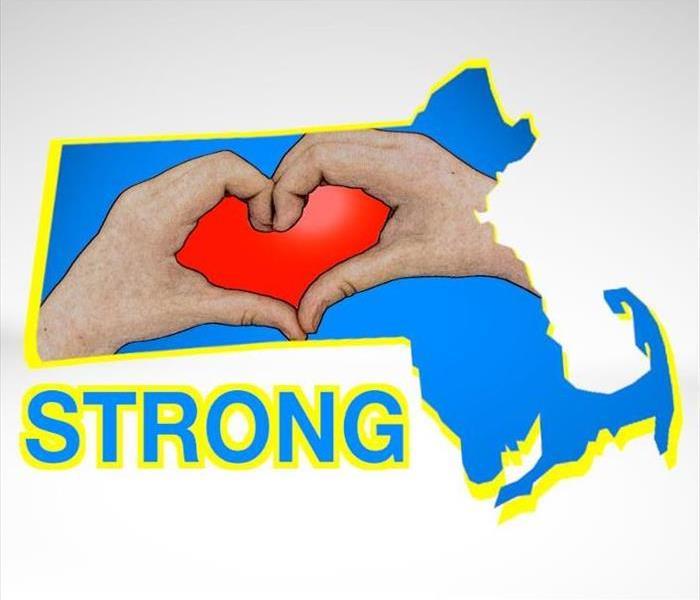Planning To Reopen - Phase 1 Caring For Our Infants and Toddlers
5/21/2020 (Permalink)
As residents of the Commonwealth begin to head back to work the need for safe child care is paramount. Governor Baker has also shed additional light on the importance of safe daycare services as residents of Massachusetts return to work.
The following steps are recommended by the CDC to when caring for infants and toddlers in the child care industry.
As always, work with your local health officials to determine a set of strategies appropriate for your community’s situation.
(See our "Planning to Reopen series of blogs for more information regarding CDC, EPA, FDA, and OSHA safety requirements). To review the administration's reopening guidance from the state click here. To view Governor Baker's full report click here).
Diapering
When diapering a child, wash your hands and wash the child’s hands before you begin, and wear gloves. Follow safe diaper changing procedures. Procedures should be posted in all diaper changing areas. Steps include:
- Prepare (includes putting on gloves)
- Clean the child
- Remove trash (soiled diaper and wipes)
- Replace diaper
- Wash child’s hands
- Clean up diapering station
- Wash hands
After diapering, wash your hands (even if you were wearing gloves) and disinfect the diapering area with a fragrance-free bleach that is EPA-registered as a sanitizing or disinfecting solution. If other products are used for sanitizing or disinfecting, they should also be fragrance-free and EPA-registered. If the surface is dirty, it should be cleaned with detergent or soap and water prior to disinfection.
If reusable cloth diapers are used, they should not be rinsed or cleaned in the facility. The soiled cloth diaper and its contents (without emptying or rinsing) should be placed in a plastic bag or into a plastic-lined, hands-free covered diaper pail to give to parents/guardians or laundry service.
Washing, feeding, or holding a child
It is important to comfort crying, sad, and/or anxious infants and toddlers, and they often need to be held. To the extent possible, when washing, feeding, or holding very young children: Child care providers can protect themselves by wearing an over-large button-down, long sleeved shirt and by wearing long hair up off the collar in a ponytail or other updo.
- Child care providers should wash their hands, neck, and anywhere touched by a child’s secretions.
- Child care providers should change the child’s clothes if secretions are on the child’s clothes. They should change the button-down shirt, if there are secretions on it, and wash their hands again.
- Contaminated clothes should be placed in a plastic bag or washed in a washing machine.
- Infants, toddlers, and their providers should have multiple changes of clothes on hand in the child care center or home-based child care.
- Child care providers should wash their hands before and after handling infant bottles prepared at home or prepared in the facility. Bottles, bottle caps, nipples, and other equipment used for bottle-feeding should be thoroughly cleaned after each use by washing in a dishwasher or by washing with a bottlebrush, soap, and water.
Healthy hand hygiene behavior
- All children, staff, and volunteers should engage in hand hygiene at the following times:
- Arrival to the facility and after breaks
- Before and after preparing food or drinks
- Before and after eating or handling food, or feeding children
- Before and after administering medication or medical ointment
- Before and after diapering
- After using the toilet or helping a child use the bathroom
- After coming in contact with bodily fluid
- After handling animals or cleaning up animal waste
- After playing outdoors or in sand
- After handling garbage
- Wash hands with soap and water for at least 20 seconds. If hands are not visibly dirty, alcohol-based hand sanitizers with at least 60% alcohol can be used if soap and water are not readily available.
- Supervise children when they use hand sanitizer to prevent ingestion.
- Assist children with handwashing, including infants who cannot wash hands alone.
- After assisting children with handwashing, staff should also wash their hands.
- Place posters describing handwashing steps near sinks. Developmentally appropriate posters in multiple languages are available from CDC.
We will continue to share with you guidance from the CDC, EPA, FDA, OSHA and the Governor's office to follow as we prepare for reopening. Also, we at SERVPRO of Newton/Wellesley know that not every business has access to the resources necessary to meet these strict guidelines. For those businesses, we are here to help!
Specialized Training
The Disaster Remediation Teams at SERVPRO of Newton/Wellesley are specialists in cleaning services and we adhere to the highest cleaning and sanitation standards. We are prepared to clean and disinfect your home or business, according to protocols set forth by the Centers for Disease Control and Prevention. We have years of experience in dealing with biological contaminants, and we will go beyond the scope of work of "normal daily cleaning". Call SERVPRO of Newton/Wellesley today for a free consultation - (617) 332-9000.
All of us here at SERVPRO of Newton/Wellesley want you and your loved ones to stay safe and know that we will make it through this together! Rest assured, we will continue to do our best to keep you up-to-date and informed!






 24/7 Emergency Service
24/7 Emergency Service
